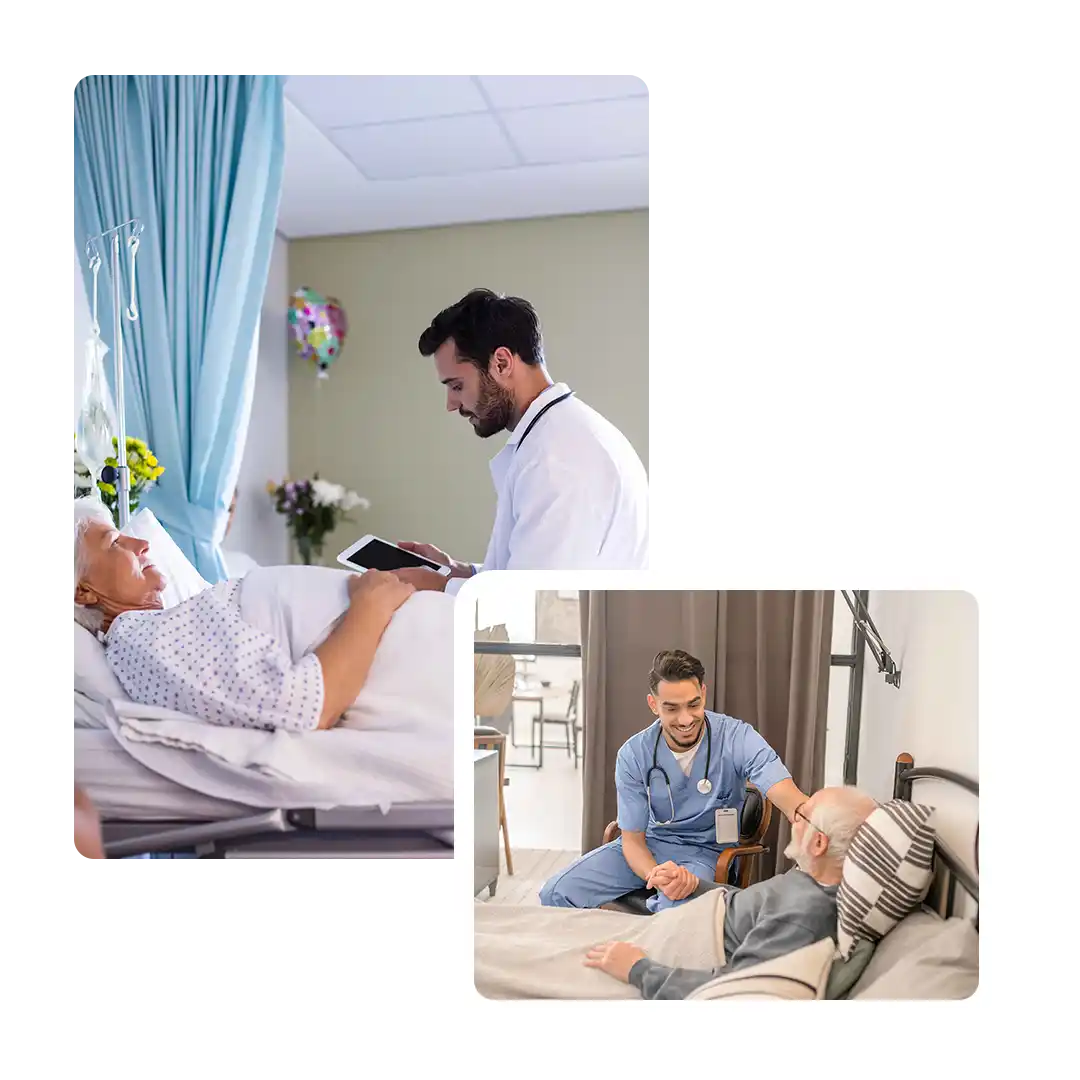Coma Care
A coma can arise from complications related to conditions like diabetes, infections, or traumatic incidents such as head injuries or oxygen deprivation. It entails a state of profound unconsciousness, resembling deep sleep, but with an inability to wake up or respond to stimuli. The level of consciousness and responsiveness depends on the extent of brain function. The outcome of a coma hinges on the cause and severity of damage or underlying condition. In severe cases, little improvement may occur over time, possibly leading doctors to classify the individual as being in a persistent vegetative state. Prolonged periods in this state may diminish the likelihood of awakening.
Doctors utilise the Glasgow Coma Scale (GCS) to evaluate the extent of impaired consciousness in individuals experiencing various acute medical conditions and trauma. This scale evaluates patients based on three aspects of responsiveness: eye-opening, motor, and verbal responses, assigning a score accordingly. Coma is typically a grave medical emergency, prompting healthcare professionals to prioritise the individual’s immediate survival. This involves securing their breathing and circulation to optimise brain oxygenation. Additionally, doctors strive to maintain adequate blood pressure and protect the individual’s airways to ensure proper breathing.
advantAGE Seniors proudly pioneered the nation’s first coma care centre back in 2011. Our dedicated nurses and caregivers handle a range of tasks, from feeding to physical therapy to toilet care. Our primary focus is ensuring no secondary injuries occur while patients await recovery. With our meticulous care, we effectively prevent issues such as bed sores, urinary tract infections, aspiration pneumonia, and blood clots that can lead to fatal complications like pulmonary embolism.

Comatose patients rely on nurses for essential bodily maintenance tasks that are often overlooked by those who are alert. This includes bathing, feeding, and toileting. Bathing typically involves sponge baths, feeding may be continuous or periodic via a tube, and toileting care can involve catheterization or changing diapers promptly upon incontinence. Additionally, they require physical therapy to prevent muscle atrophy and joint stiffness, regular repositioning in bed to prevent pressure ulcers, and sometimes oral suctioning to clear excess saliva. These comprehensive care measures are crucial for their well-being and comfort.
During their stay at AdvantAGE care, patients are routinely monitored by nurses, with checks occurring at least once every hour. In addition to moving patients to prevent bedsores approximately once every two hours, nurses dedicate around 15 to 30 minutes per hourly check-in for tasks such as feeding and physiotherapy. This equates to six to 12 hours of nursing care per day. Additionally, patients who still have the ability to move—and at times grow restless—may need more attention to make sure they don’t pull out their tubes or injure themselves. Moreover, patients receive at least half an hour of focused attention from a doctor during alternate-day check-in rounds.
Even amidst shattered hopes and looming prognostic gloom, the Advantage Coma Care team remains steadfast, continuously praying, pursuing, and providing timely, effective, and appropriate care. We expect miracles.

